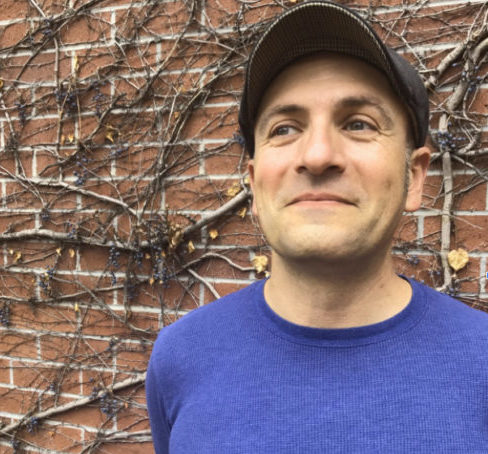Engin Yesilyemis spent most of his time alone in hotel rooms. Rather than waste away with what he referred to as “terrifying garbage in and garbage out” cable television, the 43-year-old turkish immigrant cultivated a space of learning, teaching himself stand-up bass while traveling as a sales representative.
The standup bass is a physically demanding and cumbersome instrument. In a 900 square foot apartment, it demands attention. Its grandiose presence brought Yesilyemis unavoidable shame when he neglected to practice. After seeking private lessons with Steve Hoffman, bass guru of Stan Roy’s Music Store of Santa Rosa, Yesilyemis felt confident enough on his instrument to enroll in a SRJC course.
Yesilyemis decided to sign up for an entry level Jazz Improvisation class at Santa Rosa Junior College, where he found mentorship and accountability. Students in Jazz Improv do not need to be able to read music. The minimum requirement to be accepted into the beginning level class is a proficient understanding of an instrument’s major scales in all 12 keys.
“You must believe in the divine plan of the mundane, the major scales, because from that very basic foundation, everything is based upon,” Yesilyemis said.
“Jazz is a club for those who believe in the process.The process can be painfully slow, but one must be in love with the process and in love with getting better.”
Improvisation begins in groups to allow more playing time for each student. Bennett Friedman, Director of Jazz Studies at the SRJC, facilitates an environment for development of these skills in his four course levels of jazz improvisation. Friedman, when asked how he encourages confidence and freedom of expression in his students, said, “A lot happens between and within the students. Other students are the best model.” The students represent a diverse group of backgrounds, ages, and personalities. “Some students cannot wait to perform and others are reluctant to dive into the swimming pool,” he said.
Friedman creates the space for these interactions, but ultimately it is the relationships between students that contribute the most to their improving playing abilities. The more experienced players naturally tend to act as mentors to less experienced students.
“Improvisation is a conversation and it’s a lot like talking,” said Marc Anderman, Chairman of the Music Department at SRJC. He describes jazz improvisation as, “the art of being self-expressive without being selfish.” Anderman adds that the influential relationships resemble the big brother and big sister mentorship found in athletic programs. A musician can choose to play by themselves, but to be a part of any type of ensemble requires negotiation. Learning to think as a cooperative group member, while maintaining individual creative integrity, requires practice and consistency. “As a bass player you have responsibility to the rhythm,” Yesilyemis said.
“For me, jazz is a conversation among musicians on an agreed topic: the song and chord changes,” Once a musical vocabulary is acquired, a player chooses to express themselves in any number of ways, just how each person chooses how they will be in any moment. Personality comes through in improvisation.
Yesilyemis hosts a Jazz Philosophy seminar at the Arlene Francis Center in Santa Rosa every third Thursday of the month. The beauty of these seminars is that participants are able to examine a discipline they are close to in a different context. Ages range from high school students to senior citizens.
Yesilyemis says he enjoys the role of being a member of a movement. “Call it jazz, call it music,” he said. “We are in a culture of ‘better’. ‘Better’ is like a carrot that gets dangled in front of people. We are moving away from a value system and towards quick wins.” All schools of thought exist–from those that enhance the idea of jazz, to those that cheapen it. Jazz is a language. Regardless of what country of origin, jazz players gathered in one room can communicate together through jazz. It can be five people in a room. That’s five different life experiences. Each person brings their own color to the tune. Jazz is a true reflection of life.
Jazz taught Yesilyemis to welcome feedback. Yesilyemis recognizes that in every stage of life one begins as a peasant and aspires to being a king. In every transition, Yesilyemis said, “Life is like a book, you have chapters, periods that end and begin.” He hopes to one day teach in the music department at SRJC.



Engin Yesilyemis • Apr 19, 2018 at 8:46 am
Hello Good People,
Thank you for publishing this piece about the Music Department and myself.
If I may, I’d like to ask for two corrections to be made on this article so the information that’s provided is accurate.
1. where I give Jazz Philosophy clinics are not at A’roma Coffee Roasters but the Arleen Francis Center.
2. The author’s correct name is Lauren Knigge, her last name is not Parnes.
If you could please re-edit the piece accordingly, the readers will know where to find the Jazz Philosophy clinics and the credit for this piece will be given to the right person.
I thank you in advance for your time.
Cheers
Engin Yesilyemis
SRJC Jazz Studies
Bass